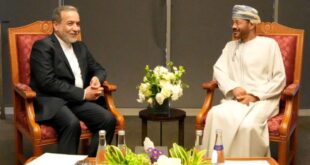TEHRAN (Reuters) — Iran said on Saturday turnout was high in elections for local councils and a powerful clerical body, with some initial reports suggesting allies of President Mahmoud Ahmadinejad might not have won resounding backing.
But analysts said it was too early to see a clear trend in Friday’s vote, the first popularity test for Ahmadinejad since he took office last year.
Any sign of softer support for Ahmadinejad would encourage Western governments alarmed by his anti-Israel statements and fears Iran is seeking nuclear weapons, which Tehran denies. Most official results for the twin polls for councillors and members of the Assembly of Experts were not expected until later Saturday at the earliest, officials said.
Unofficial and partial results suggested voters backed a range of candidates, giving all political groups something to cheer but allowing none to claim outright victory.
“At first glance, it’s not all good news for Ahmadinejad,” said an Iranian political analyst, who asked not to be named.
But he said some vote counts might not be representative at this early stage. Another analyst was similarly cautious.
The Iranian news agency quoted officials citing turnout of around 60 per cent of the 46.5 million eligible voters, higher than previous council and assembly votes. Iran’s press said the turnout was a blow to Iran’s “enemies”.
The interior ministry announced winners in several constituencies for the 86-member Assembly of Experts, which appointed, supervises and can even unseat supreme leader Ayatollah Ali Khamenei, Iran’s highest authority.
Winners included Ayatollah Mohammad Momen, who defeated a prominent protege of firebrand Ayatollah Mohammad Taqi Mesbah-Yazdi, widely seen as the president’s spiritual mentor.
Battleground
The victory by Momen in the religious centre of Qom is likely to please those who fear Mesbah-Yazdi and his allies want to dominate the assembly and use it to impose their vision of government where authority comes from God not the people’s vote.
Mesbah-Yazdi is standing in Tehran. Two local news agencies suggested his main rival, former president Akbar Hashemi Rafsanjani, was leading that race. Mesbah-Yazdi was said to trail but still in a position to win one of the capital’s seats.
These and other reports could not be confirmed.
The Tehran City Council race was the main battleground, where Ahmadinejad’s supporters competed against backers of another conservative, Tehran mayor Mohammad Baqer Qalibaf, and reformists seeking a political comeback.
No official results have been announced but the semi-official Mehr news agency said Qalibaf’s backers would get eight Tehran City Council seats, Ahmadinejad’s backers four and reformists three. Mehr did not give a source.
“It’s definitely going to be divided council,” the analyst said. He said the composition could change as votes came in from different areas of the capital, where voting sympathies divide roughly along class lines.
In the 2003 council race, Ahmadinejad’s supporters swept 14 of 15 Tehran council seats. Some allegiances later shifted but reformists, who back social and political change, had no seats.
Some 233,000 candidates stood for more than 113,000 council seats in cities, towns and villages across the country.Â
 Eurasia Press & News
Eurasia Press & News



